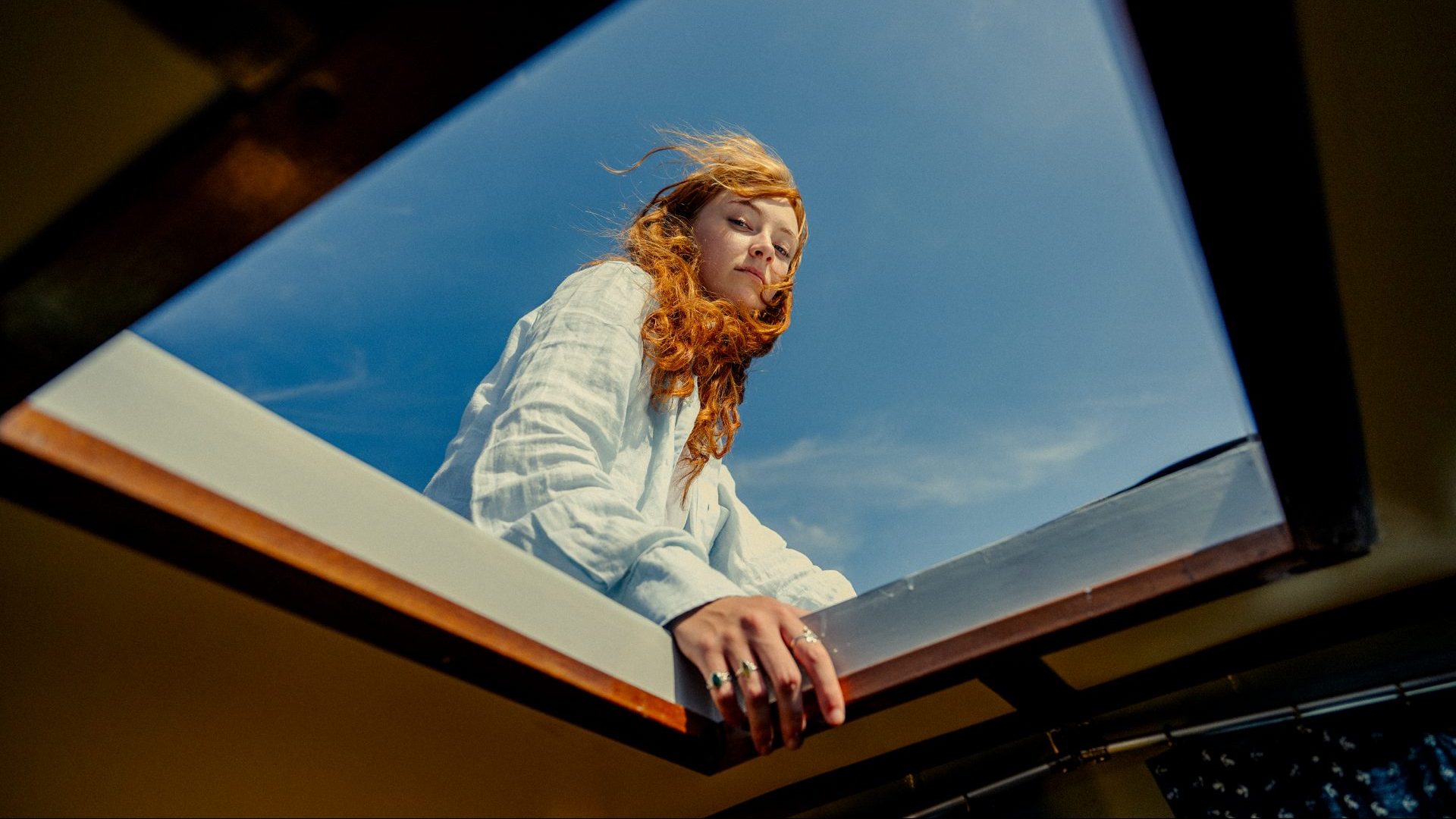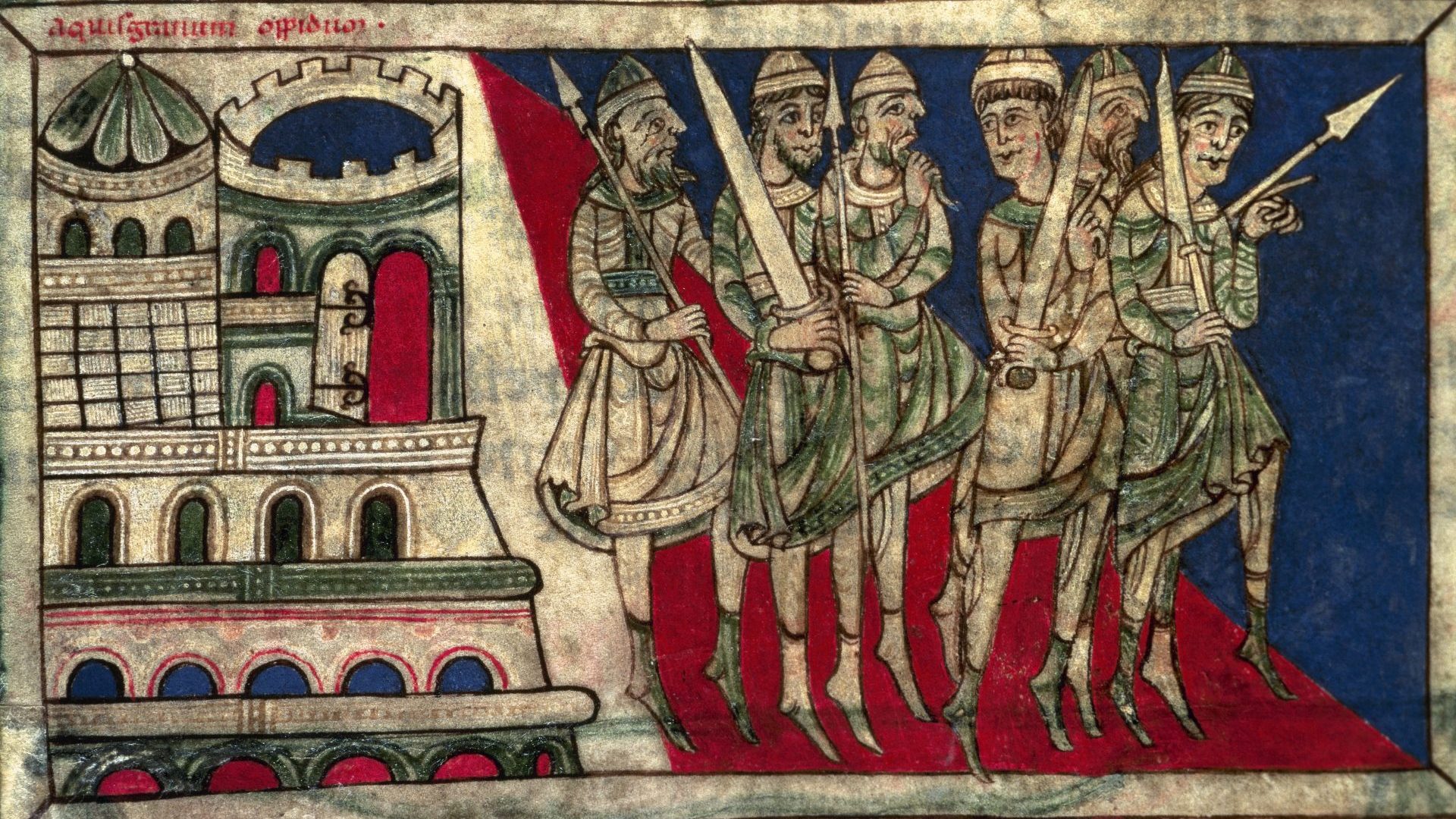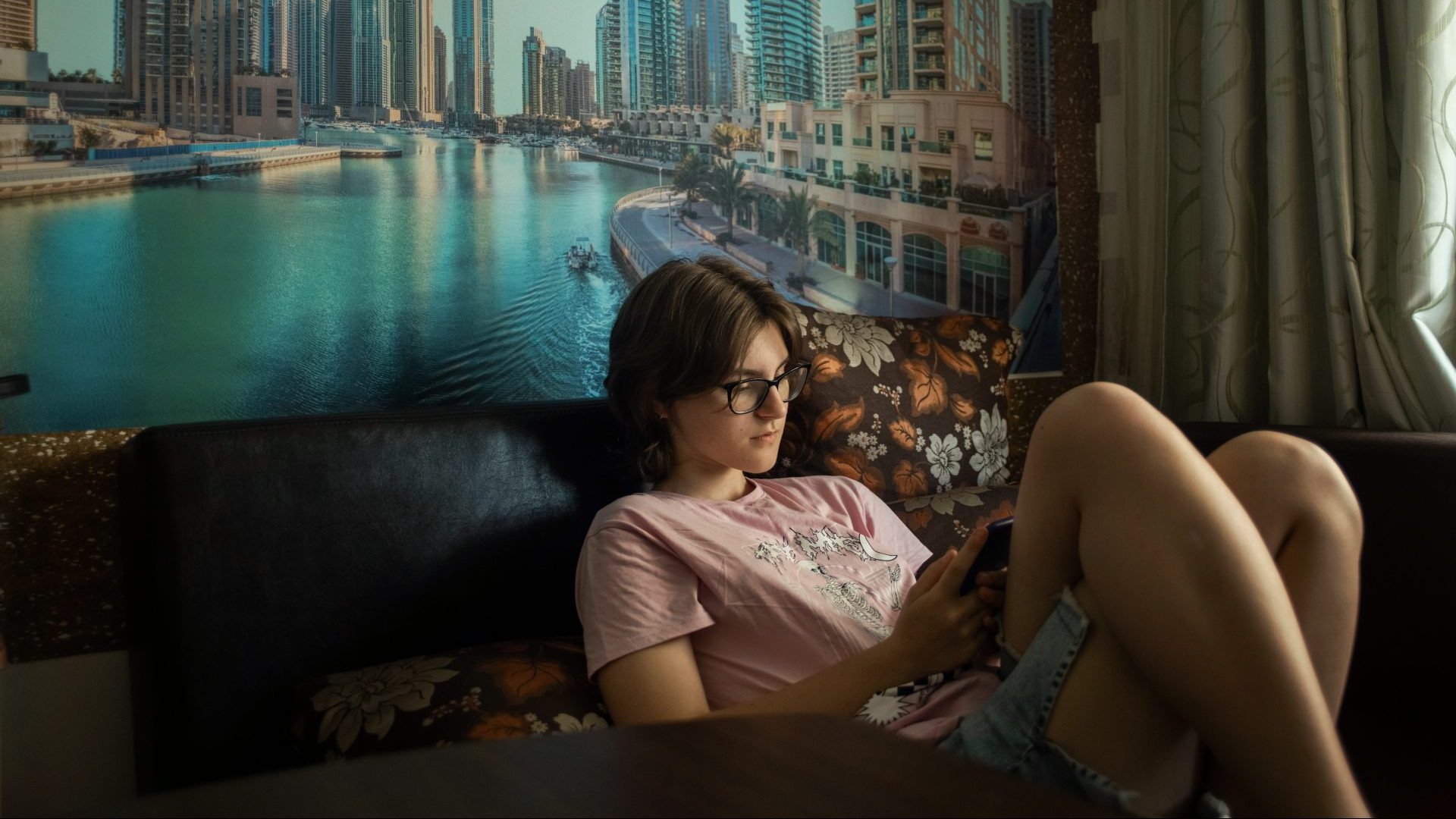Few would consider Dutch to be the natural language of pop. And neither does the biggest pop star in the Netherlands.
“It would be really fun and kind of a dream to sing in Dutch in other countries,” Froukje Veenstra tells me from her Amsterdam home. But she freely acknowledges that, unlike “universally felt” languages like Spanish and French, “Dutch is a bit harsh and less easy for people to listen to.”
Froukje became an overnight sensation at just 18 when her Groter Dan Ik (Bigger Than Me) – breakneck-pace Dutch rap with an urgent message about the climate crisis – appeared in January 2020. It was streamed pushing 2 million times during the topsy-turvy year that followed and when restrictions were lifted she found herself leapfrogging club venues to headline festivals instead.
Four whirlwind years later, the softly spoken 22-year-old released her debut album, Noodzakelijk verdriether (Necessary Sadness) and it promptly shot to No 1 in both the Netherlands and Belgium. It has just been certified gold, having surpassed 40 million streams in her home country.
This is her first interview in English, and for all her scepticism about how well Dutch music could ever translate beyond the Netherlands, her intelligent, compelling and infectious pop may yet overcome the language barrier.
“We did it all by ourselves,” Froukje says of Groter Dan Ik. “I was 18 years old, and I was in school and we just uploaded it ourselves, my producer [21-year-old Jens van der Meij] and I. And all of a sudden, all these things started happening.”
The song was recorded for an assignment on Froukje’s university songwriting course in Rotterdam. The task was to write a New Year song, and while Groter Dan Ik opens with the English phrase “Happy New Year”, it soon makes it clear there isn’t much to be happy about: “The world is on fire/ And I would like to put it out/ But the fire is bigger than me.”
The unalloyed despair of Groter Dan Ik (“the crisis is here”, “we are dying”) should have made it a hard sell, but the song’s rhythmic lyrical play was irresistible. The “En ik stik in de time time ticking/ De tijd tijd tikt maar door” (“And I’m suffocating in the time time ticking/ Time time keeps ticking”) of the chorus, playing English alliteration off against pronounced Dutch plosives, made for a truly unforgettable hook.
When the follow-up Ik Wil Dansen (I Want to Dance) emerged four months later, it was no less lyrically complex. “In my songs, there are a lot of words,” Froukje laughs. “That’s kind of what it takes to tell a deeper story.”
She points out that Rwandan-Belgian pop genius Stromae, one of her big influences, also puts profound lyrics “on a beat you can dance to”. “That’s not the most common successful pop formula,” she admits, but Ik Wil Dansen captured the lockdown zeitgeist and, with its catchily disco-adjacent bassline, it became Froukje’s first chart hit.
Adopted as a protest song by the Dutch events sector’s #unmuteus anti-lockdown campaign, it was played at carnivalesque protests across the country and “Ik wil dansen” became a placard slogan.
Froukje’s status as a household name in the Netherlands was sealed when she appeared in Dutch Railways’ 2021 post-Covid ad campaign singing the specially written piano ballad Morgen is het Weer Vandaag (Tomorrow It Will Be Today Again). In the ad she was shown as a symbol of Dutch youth, sitting in a university lecture theatre, riding her bike and drinking with friends. Subsequently, her EPs Licht en donker (Light and Dark) (2021) and Uitzinnig (Delirious) (2022) both went Top 5 in the Netherlands and Belgium.
But while Groter Dan Ik gave Froukje instant fame, and Covid gave her this “right time, right place moment,” as she puts it, she was worried from the very beginning about getting pigeonholed as a political artist and being dismissed as “that left wing chick.” When I ask her about far right populist Geert Wilders’ shock success in November’s Dutch elections, Froukje exhibits only quiet bewilderment.
“For me, it was a really sad day,” she says, adding on the ongoing machinations over forming a government, “I’m not a really outspoken, activist person – it’s sitting and waiting for what is going to happen.”
Even so, the first two singles from Noodzakelijk verdriether did little to dispel the “outspoken” characterisation that Groter Dan Ik established. Als Ik God Was (If I Were God) was barbed (“Thank you for my future, cloudy and stained/ Thank you for a system that leaks on all sides”), while Naar Het Licht (To the Light) was a litany of anxieties, with talk of unbearable but intangible pressure and therapy and the world ending, all against banging synthpop. These seemed like deeply angry manifestos for Generation Z.
However, Froukje insists that the album takes a “more a human approach than a political approach,” saying that it may tackle big issues but “more from a personal perspective.” She says: “It’s about the struggle growing up, and also feeling a bit lost in a world where systems are just really hard to grow in and navigate through as a young person.”
Yet she is quick to add: “But also [it’s hard] for other generations. I think we as humans are pretty alike in many ways.” Indeed, her empathic nature and her existential rumination far beyond her years means she is able to move beyond her own experiences to a more universal message on this LP.
Noodzakelijk verdriether is an album of vital, accomplished pop with extrovert urgency and melancholy introspection in equal measure, and it is very much informed by city life. “The space where I live is important in my songs because I always think in images,” Froukje says, “So when I tell a story about how I feel, the surroundings are important – the image of me moving through the story. And right now I live in Amsterdam, so it’s simple – the image of me biking through the streets.”
But this urban imagery has a broader meaning too. “I guess for me the city life, it’s kind of a symbol for my grown-up life because I was born in a small town,” Froukje says. “Because when I think about growing up, or sort of figuring myself out, the biggest growth has happened when I moved into the city.”
The album’s cover shows her amid the countryside around her home town of Nieuwkoop, and she says: “It means a lot to see myself as I am now at this age in this environment. I know it so well and yet every year I get more estranged from it.”
She adds: “It’s not the prettiest place in the world, but it’s a place that’s dear to me. And I think for me that went along with the [theme of the] record, that life is not always pretty but it matters, where you are with who you are, and if you feel at home then it’s all right.”
Indeed, it is finding hope and peace amid life’s harsh realities that is the message of the album. This is crystallised on the minimalistic 23 Mei – the title refers to the birthday of Froukje’s older brother who died of leukaemia at the age of four.
“When there’s a great loss in your life it’s horrible, and it’s really sad, but life doesn’t end there. The last sentence of the song is to me what it is about” (“It sucks and is unfair / But life is also wonderful/ So I thank it for its hardness even when sometimes it’s a bit too much for me”).
This is what is behind the album’s title – the “necessary sadness” that is part of the tapestry of a rich life. Groter Dan Ik may have been fatalistic, but on this LP, Froukje turns out to be a radical optimist.
23 Mei bears the hallmarks of kleinkunst, the Netherlands’ folk-based and lyrically dense response to the rise of French chanson, and it is a reminder that Froukje is part of the rich lineage of Dutch popular music. Froukje names Maarten van Roozendaal as a key influence, praising his “beautiful songs about more difficult topics like religion or politics.”
His melancholic, urgent songwriting, as well as his early death from cancer, made van Roozendaal a latter-day Jacques Brel (Froukje is such an old head on young shoulders that her words sometimes even invite comparison to Brel’s own bittersweet philosophising).
But Froukje is also keen to talk about her peers in the contemporary Dutch music scene. She has just put her voice on the angular beats of hip hop duo SIM-OJ’s recently released single We Doen Er Allemaal Aan Mee (We’re All In On It). She is effusive about another collaborator, S10 (Stien den Hollander), who also found fame as a teenager and with whom she duetted on the intense Zonder Gezicht (Without a Face) on her Uitzinnig EP, as well as Nooit Meer Spijt (Never Regret Again) on S10’s 2022 album.
S10 sang the memorable De diepte (The Depth) at Eurovision 2022, the first Dutch-language entry for the Netherlands in 11 years, and Froukje mentions the current momentum behind the song for this year’s song contest, Europapa.
An ode to Schengen and the borderless European Union, produced by happy hardcore legend Paul Elstak and performed by novelty hip hop star Joost Klein, it is silly and serious in equal measure, and Froukje says: “I’m curious what that will do, if people are open to the language, if it’s something that people would like.”
If not, the population of Dutch speakers globally numbering only 23 million means Dutch-language pop has a limited market. But Froukje is clear that she isn’t interested in compromise to achieve world domination.
‘It’s not my mission to extend my work field,” she says firmly, “I will always keep singing in Dutch.” It is the rest of Europe’s loss.




